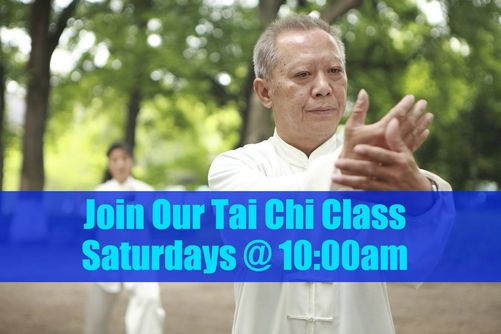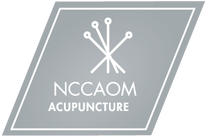Our mentally and emotionally-induced unnatural resistance to adjust our basic routines together with the seasons causes a clash between our internal environment (our physiology) and the external environment. Each morning for the past week, I have found myself to be a bit more tired than usual. There were nights when I went to bed a little late and nights I went to bed early, but it didn't make a difference. Some mornings I even felt a little tickle in my throat and others I noticed a slightly runny nose and little extra saliva in my mouth. Too much detail? Well there's a reason. When the seasons change, our bodies do the same. When the physical environment, and even the emotional environment, begin to change around us, our bodies, being the pros they are, automatically make an effort to change with them. If they didn't, we would enter an unfortunate state of dis-ease. Our mentally and emotionally-induced unnatural resistance to adjust our basic routines together with the seasons causes a clash between our internal environment (our physiology) and the external environment. This is the reason I personally prescribe the art and exercise of Tai Chi during these times of the year. Although there are numerous styles of this exercise, its overall gentle movements and calming nature provide one important element in this time of seasonal transition; Movement. A consistent Tai Chi practice during any seasonal transition, especially from summer to fall, will allow for a healthy experience of movement from one season to the next, no matter the type of climate. Whether you live in the northern or southern hemispheres, on the equator, or in Antarctica, there is always a transition in the environment, which has an inevitable effect on your body's physiology.
The main reason why practicing during the summer to fall transition is so important is due to the overall nature of the seasons. What I mean is, during summer exists the peak temperatures of the year in the external environment, which create physiological changes that lead to the release of heat (sweating) from our bodies. Or it can lead to something we refer to as warm diseases (think heat exhaustion) because our bodies are unable to release the heat inside of us leading to dangerous and sometimes life-threatening conditions. Additionally, as you may already be aware, there is a large amount of breathing occurring during the practice of Tai Chi. This breathing is a constant exchange of air and its contents between the external and internal environments which allow is to more rapidly create a level of balance between the two ultimately guided by a mindful approach to practice. After summer, we transition towards the colder seasons, first moving through fall; a season of dryness, chilly temperatures, and less and less movement in the outdoors (e.g. the beginnings of hibernation). So as you can see, if we live in these environments, then our bodies are certainly affected by them, and we must take appropriate action to adjust in parallel with them. What action is that? The action is Tai Chi. Which I believe, as a Licensed Acupuncturist, to be the single most effective form of exercise that offers and guarantees (with your consistent practice and close observation of your physiological changes) the opportunity for a healthy transition through any season change. So, if you usually struggle during these times of year, particularly from summer into fall and then into winter, start your Tai Chi practice as soon as you notice the seasons beginning to change. Don't wait! Unless of course you prefer to catch a cold, get the flu, dine on throat lozengers, suffer from sinus infections, and yell at the top of your fluid-filled lungs "I hate this season!" Peacefully,
0 Comments
 I have one question for you. What would your life be like without any stress? Can you even imagine it? Would you know how to live without it? Would you eventually want it back? Now, I'm not pretending that I know what "stress" is for you. In fact, I don't believe the word "stress" is an accurate description of what anyone claims it to actually be. In my experience, we simply use this word as a label, like we do with many others, because we are unable to describe what it is we are actually experiencing when the things we call "stressors" appear in our lives. Sure, you cannot control certain situations, such as when someone comes to your desk asking for your assistance with a task when you're already buried in work. What you CAN do is manage the situation by observing your response. Observe what happens in you physically: Does your breathing increase in frequency? Does your heart start to pump faster? Do you hold your tongue and prevent yourself from saying what you REALLY want to say? Isn't it interesting how our decisions and our reactions/responses change our bodies' physiology in an instant? Also, did you know that the chemical response of generating an emotion lasts approximately for 90 seconds only? Interesting, considering the stories that go on in our heads easily continue for MUCH LONGER than 90 seconds. (Perhaps we should all call ourselves great storytellers like Bill Cosby.) But seriously though, after 90 seconds of listening to your co-worker ask for your assistance and you then responding to his or her request, do you often find yourself hung up on the situation repeating it in your head, or making stories up about this person never doing any work and always passing it off onto others? If so, you're digging your own grave at a very rapid and emotionally-charged pace. By learning to manage your reactions/responses in simple situations such as these, it is quite possible that you may never even reach the 90 second point. Awareness of your emotions is the key to the door for managing stress. Observe what happens inside of you during similar situations. Do the same things always appear? Does your breathing always rise up into your chest and occur more frequently? Do you clench your jaw automatically? Does your face always blush? If you picked apart each physiological response that happened in these situations and pondered about them, I'm certain you could come up with a way to limit the length of its presence in the moment, and perhaps for good.
Understanding what happens inside of your body and how it manifests on the outside will determine your ability to live with or without "stress". So, the next time you encounter what you consider to be a "stressful" situation, keep your senses open. After the situation passes, reflect upon what just happened and understand why your body did what it did. Do this and the relationship you have with your body will strengthen, and who knows, maybe even your relationship with others will as well. Peacefully, |
Posted here are...inspirational ideas on healthy living through eastern medicine, optimism, and possibility through empowerment. Archives
March 2020
Categories
All
|
HOURS & LocationMondays-Thursdays 5:30-6:30pm (Tai Chi & Qigong only)
Fridays 5:00-6:00pm (Tai Chi & Qigong only) Saturdays 1:00-6:00pm (Acupuncture only) |
CONTACT Us |




 RSS Feed
RSS Feed



